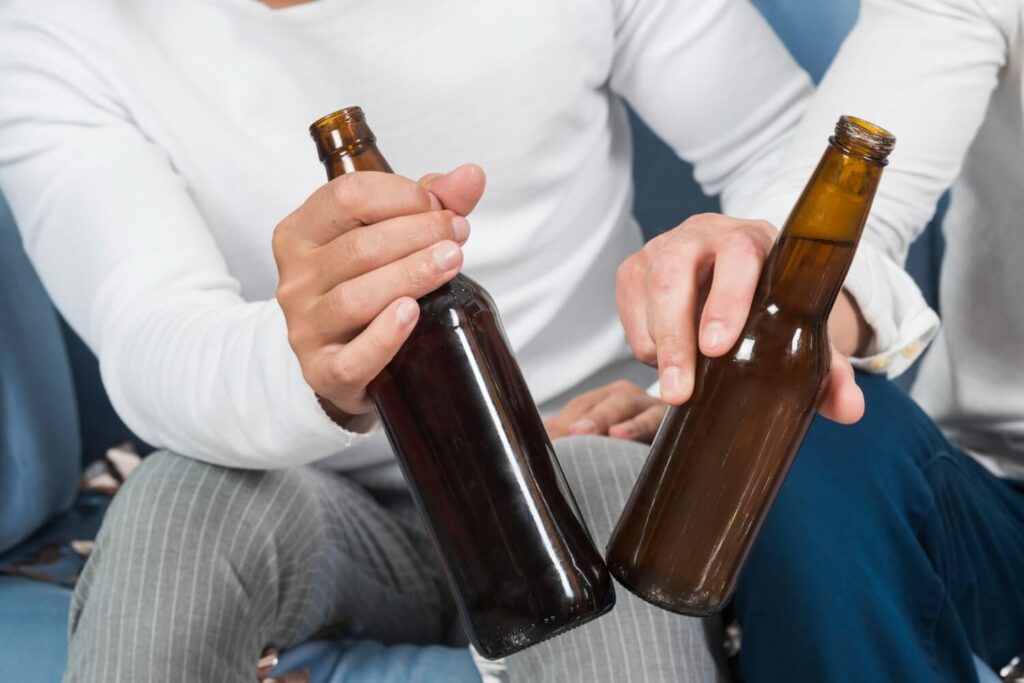Alcohol withdrawal syndrome encompasses a range of symptoms that occur when someone who is physically dependent on alcohol suddenly stops or significantly reduces their consumption. This process can be extremely challenging and uncomfortable, and understanding the symptoms and stages can help manage and seek appropriate treatment.
Alcohol Misuse and Binge Drinking
The National Dietary Guidelines suggest moderation in alcohol consumption, with women advised to limit themselves to one drink per day and men to two drinks per day. Exceeding these limits increases the risk of various health problems, including liver disease, cardiovascular issues, and cancer.
Alcohol Misuse
Consuming more than the recommended limits is generally considered misuse and can lead to significant physical and mental health issues.
Binge Drinking
This specific form of alcohol misuse is characterized by consuming a large amount of alcohol in a short period—five or more drinks for men and four or more drinks for women.
Both alcohol misuse and binge drinking significantly raise the risk of developing an alcohol use disorder (AUD), a condition where an individual cannot control their alcohol consumption despite negative consequences.
Causes of Alcohol Withdrawal
Alcohol withdrawal occurs due to changes in brain activity caused by prolonged and excessive alcohol use. The brain adapts to the presence of alcohol by altering levels of neurotransmitters, particularly gamma-aminobutyric acid (GABA) and glutamate. GABA is the brain’s main inhibitory chemical, while glutamate is the main excitatory chemical.
When alcohol consumption is reduced or stopped, the brain’s activity becomes unbalanced, leading to a hyper-aroused state and various withdrawal symptoms. These symptoms can appear within hours of the last drink and vary greatly from person to person.
Symptoms of Alcohol Withdrawal
The symptoms of alcohol withdrawal can vary in intensity and duration but often include persistent and severe headaches, feelings of anxiety and restlessness, involuntary shaking (particularly in the hands), difficulty falling or staying asleep, persistent fatigue, mood changes such as irritability, depression, or mood swings, gastrointestinal issues like nausea, vomiting, or diarrhea, rapid or irregular heartbeat, elevated blood pressure levels, hyperthermia, rapid or irregular breathing patterns, hallucinations (seeing or hearing things that aren’t there), and in severe cases, seizures which can lead to convulsions.
When to Seek Help for Alcohol Addiction
You will also have to ask for help from those who find it hard to control their drinking habits. If you suspect you or a loved one might have an AUD, consider taking a self-assessment to evaluate the severity and likelihood of the disorder.
How Greater Boston Behavioral Health Can Help
If you are struggling with a concern as serious as alcohol addiction or know someone who is, you can connect them to Greater Boston Behavioural Health. Here’s a look at the mental health programs they offer:
- Mental Health Programs: Comprehensive support for various mental health issues.
- Intensive Outpatient Program (IOP): Structured treatment while allowing patients to maintain daily responsibilities.
- Outpatient Program: Flexible treatment options to fit individual schedules.
- Acceptance and Commitment Therapy (ACT): Helps patients accept their thoughts and feelings while committing to positive behavior changes.
- Cognitive-Behavioral Therapy (CBT): Focuses on changing negative thought patterns to improve behaviors and emotions.
- Dialectical Behavior Therapy (DBT): Combines CBT with mindfulness techniques to manage intense emotions.
- Mental Health Therapy Program: Personalized therapy to address specific mental health needs.
If you or someone who needs help, recommend them to Greater Boston Behavioral Health. Our comprehensive mental health programs, including Intensive Outpatient and Outpatient Programs, provide the support needed for recovery. We offer evidence-based therapies such as Acceptance and Commitment Therapy (ACT), Cognitive-Behavioral Therapy (CBT), and Dialectical Behavior Therapy (DBT) to address both the physical and psychological aspects of addiction. Our personalized Mental Health Therapy Program ensures that each individual’s unique needs are met. Call now or contact us to day to get help and guidance from one of our trusted GBBH staff members at 888.278.0716
FAQ on Alcohol Withdrawal
What are the common symptoms of alcohol withdrawal?
Symptoms can range from mild to severe and include anxiety, tremors, sweating, nausea, insomnia, and, in severe cases, seizures and delirium tremens (DTs).
How long does alcohol withdrawal last?
The duration varies depending on the individual and their drinking history. Typically, symptoms begin within 6-24 hours after the last drink, peak at 24-72 hours, and can last for a few days to a week.
Are there any long-term effects of alcohol withdrawal?
While most withdrawal symptoms resolve within a week, some individuals may experience prolonged symptoms such as mood swings, fatigue, and sleep disturbances, which may require ongoing treatment.
How does GBBH help manage alcohol withdrawal?
At Greater Boston Behavioral Health, we provide medically supervised detox programs to ensure safe and effective management of withdrawal symptoms. Our team of professionals offers medications, therapeutic support, and continuous monitoring.
What stages of alcohol withdrawal does GBBH address?
GBBH addresses all stages of alcohol withdrawal, from mild to severe. We offer comprehensive care that includes medical supervision, counseling, and support throughout the withdrawal process.
What treatments are available at GBBH for alcohol withdrawal?
GBBH offers a range of mental health treatments, including medications to alleviate symptoms, individual and group therapy, and holistic approaches to support overall well-being during withdrawal.
How does GBBH support long-term recovery after withdrawal?
GBBH offers comprehensive addiction treatment programs, including inpatient and outpatient services, counseling, support groups, and ongoing care to support long-term recovery and prevent relapse.
How can I get help for alcohol withdrawal at GBBH?
If you or a loved one is experiencing alcohol withdrawal, contact Greater Boston Behavioral Health at (888) 278-0716. Our team is ready to provide the support and treatment needed to safely navigate withdrawal and begin the journey to recovery.

